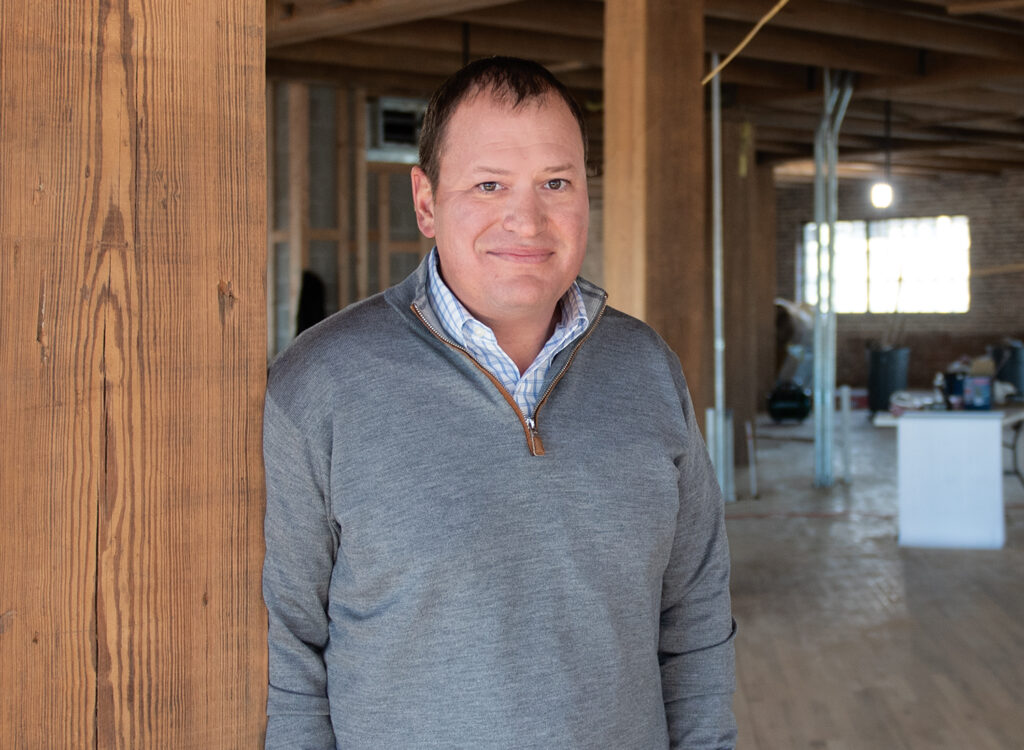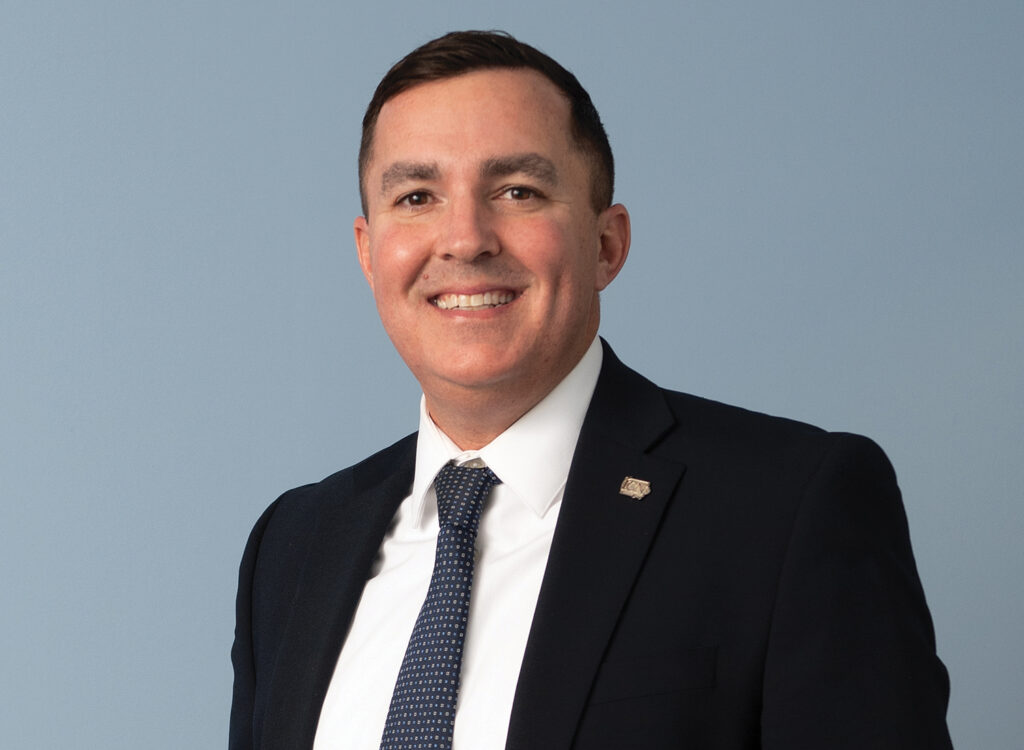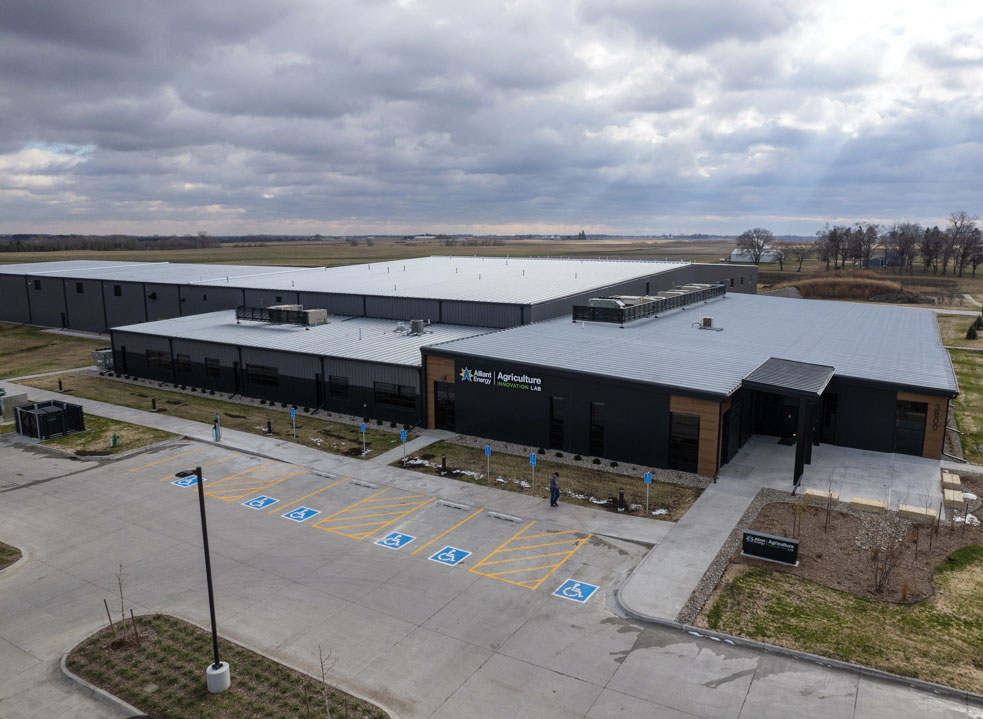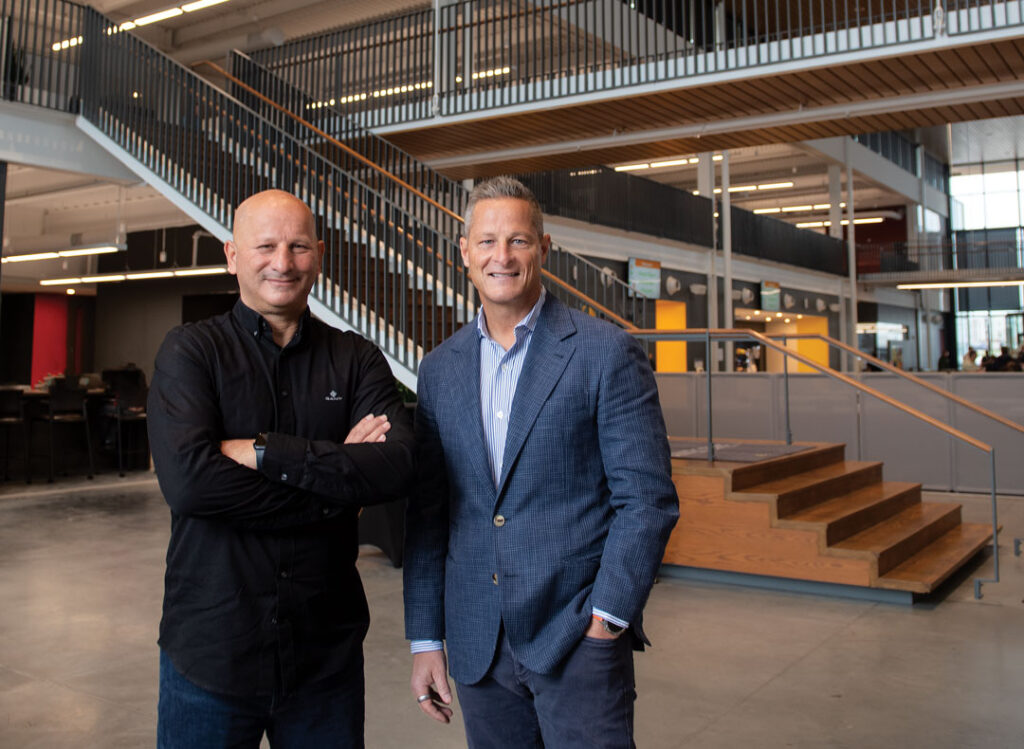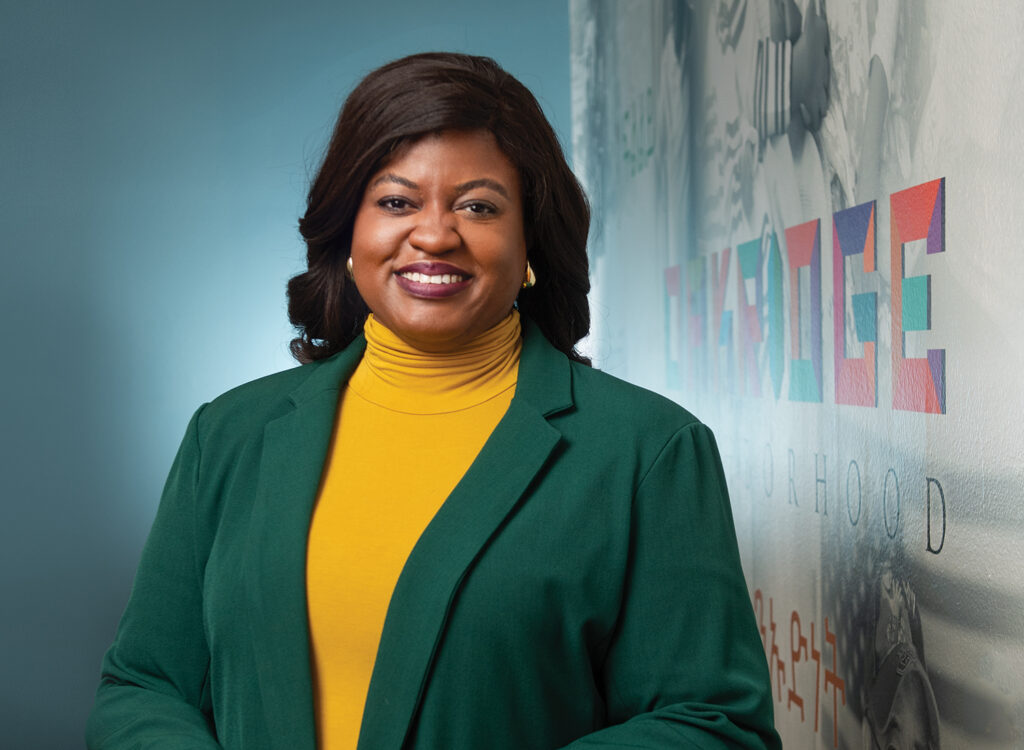A Closer Look: Douglas Fiore
Take a closer look at the president of Mercy College of Health Sciences

JOE GARDYASZ Jan 30, 2019 | 8:46 pm
8 min read time
1,943 wordsBusiness Record Insider, Health and WellnessDoug Fiore’s enthusiasm for Mercy College of Health Sciences and higher education is somewhat contagious, as I found after sitting down with the college’s new president. A seasoned college administrator, Fiore was taking what was supposed to be a one-year hiatus to finish writing some higher ed textbooks when a recruiter he knew alerted him to the opening with Mercy College. He was selected through a national search and formally began as president on June 10, filling the role formerly held by Barbara Quijano Decker. Fiore’s career in education administration has spanned more than 30 years; in his most recent academic role he was provost and vice president of academic affairs for Park University in the Kansas City area. He is also recognized for his consulting work related to developing culture, collaborations, partnerships and faculty recruitment and retention, and has written or co-written eight books for school administrators. After seeing a recent dip in enrollment, Mercy College had a record number of applicants for the past fall semester, and the current spring class includes the largest group of new students for any class in the college’s history. Fiore wants to broaden the college’s reputation across the state and expand the college beyond its Des Moines campus. In the community, Fiore recently joined the board of the Des Moines Downtown Chamber of Commerce.
What were you doing before taking this position?
I had a couple of textbooks that I had written where the publisher was really after me to do future editions, and there were a couple of consulting opportunities lined up. So I spent a year near family [in Columbus, Ohio], writing and consulting. It really turned out to be six months, because then I got involved in the interview process for this position.
Were you taking a step back from administration for a while?
That’s exactly right, and it was more to complete the projects than to actually step back. I didn’t really feel the need to step back, but it was good to have a little bit of reflective time because there had been a couple of career advancements that had happened relatively quickly, and I really needed to spend some time thinking what would be the right fit for me. I wanted to make sure that when I became a college president, that it was in a place where I could serve for a long time.
What led you to choose Mercy College?
When I looked at Mercy College of Health Sciences, there were a number of things that I knew fit who I was as a leader. One, there was a real need — a perceived need, certainly, at that point — for the college to grow and to be more known within the community. We really had, it was obvious, an excellent educational product, but not very many people knew it. Also, I had been raised Catholic and it’s a Catholic college. I had never been to Des Moines. That’s what I think finally sealed the deal, because I realized that where this college is today with the programs it offers and what it stands for just seemed like the absolute perfect fit.
How would you describe Mercy College’s current focus and strategic direction?
The focus, of course, is still nursing and health sciences, and it always will be. But doing so in a way that pays homage and tribute to the legacy of the Sisters of Mercy, we think that we provide an education that has that human element to it that other places may not be fortunate enough to have. Since I’ve been at the college, our emphasis has been on becoming more known and looking at areas in which we can expand.
What are some of the ways Mercy College may expand?
We’re in a very privileged position being a college that’s part of a giant health network [Mercy Health Network]. Yet a lot of the hospitals and clinics in the network don’t have any experience working with us, because we’ve always been the small college in downtown Des Moines. And now we’ve got plans to go to other areas of the state, and even outside the state, to see what kinds of opportunities there may be. I think we’re strategically positioned in a great way. I knew from the very beginning that the best days of this college were ahead of it, not behind it. You can’t always say that in an industry that’s struggling as much as private higher education is.
Has there been discussion about satellite locations?
Whether we do physical satellite locations or increase our online presence, or partner with community colleges or other higher education institutions to offer instruction within their facilities — or any combination of those — the goal isn’t the medium, the structure or the size. The goal is providing the Mercy College education to as many people who want to be health care professionals as possible. We’re very open to what that’s going to look like. Higher education clearly is changing, and it’s time for Mercy College of Health Sciences to be on the front of that.
Do you see a further broadening of academic programs ahead?
Definitely. I think one of the things, particularly in the health sciences, is that you’ve got to be assessing your program viability and effectiveness and fit with the future marketplace on a regular basis. While there are no plans for [adding] a particular program today, nor are there plans for closing a program today, you always have to know that that program mix is subject to change. One area that we definitely need to explore is in behavioral/mental health. Clearly, Iowa is experiencing basically a crisis. And Mercy Health Network is making moves in providing services. It only makes sense for Mercy College to follow along.
Are there specific new programs that you expect in the next 12 months?
I did a presentation for our board of directors at our November meeting that was essentially a look at the first six months — here’s what I’ve seen; here’s where we’re going. In the next 12 months I think we’ll continue to see some enrollment growth. We’ve reached the point now where there’s not a whole lot more we can do in Des Moines in terms of attracting students to apply to our college. There is physical room where we could have more students, and we’d love to have more students.
When I got here, we were in an enrollment decline, and because of our great staff — really, not at all because of me — we’ve turned that around. So specifically the next step is to find out what opportunities there are in the state, and who would really like to partner with us. I’ve had the opportunity to speak with the CEOs and chief nursing officers of Mercy hospitals and clinics in different parts of the state, and people are very interested in what it would look like to partner with us. In fact, we’ll be creating a position for somebody to do just this work — to go around and familiarize the rest of the state with us and create relationships.
The other thing you’ll see over the next 12 months that’s a specific goal is for us to be responsive to the needs of the health care community, instead of the traditional model of “We’ll tell you what our education model looks like — come or don’t come.”
What led to the turnaround in enrollment?
It’s been a couple of things. The college went through a branding exercise right before I arrived which resulted in a different look that made us more separate from the hospital than people perceived us as being. Also, we partnered with Lessing-Flynn to take over some of our marketing. We’ve gotten much more hip, cool or contemporary, whichever you want to call it. We’re a little edgier now. Even driving up Seventh and we have our little electronic sign, it might have something with a little more edge, like “Apply, graduate, save lives.” We’re also doing a much better job with what in higher education we call the funnel — the people that express an interest in the college.
Do you expect growth in faculty and staff in the next year?
That definitely can happen. I would imagine we would see a growth in faculty if we’re successful at offering programs in various other locations, growing programs. We started an accelerated BSN [Bachelor of Science in Nursing] right around the time I got here. That program has resulted in more faculty, because the interest and growth have been astonishing. People can earn their BSN in only 12 months, which is a very accelerated time frame, and the interest is huge. So as programs grow, faculty of course will be added. I’m more concerned about making sure that we have enough and the right faculty to teach our students than I am about staff per se. … We need more tutors, we need more academic advisement. We really need to focus on the part of our operation that is student success, student support services.
How would you describe your leadership style?
My perception is that I try to be optimistic, realistic and high-energy. I really like to empower people and then trust them to do a great job. I look at myself more as a resource. I don’t want to put my hands in everything — that’s not fair to anybody. That also assumes I know how to do everybody’s job; I don’t. I came through the academic ranks, and there are people much better at doing the work than I could ever be. … My responsibility is to know more about higher education, where it’s headed and what the needs are than anybody else. I really try to focus on that. I think it’s important as a leader that you create a sense of commitment to the vision. So I’ve spent a lot of these months trying to outline for people the vision for what Mercy College can and will be.
Tell me about your family.
My wife, Julie, and I have been married for almost four years. We have both been married before. I had raised three girls; she had raised two boys. So we were one child short of being the Brady Bunch. The kids range in age from 21 to 27, so they’re all beginning their professional lives. That in some ways makes it easy to move someplace else, but also difficult because you want to be as close to your kids as you can. We have still hopes that we will attract some of them to Des Moines.
Any interesting hobbies?
This sounds crazy, but I really enjoy my work and I enjoy higher education. And I’m fortunate my wife is interested in it, too. I will never claim to be a workaholic, but I’m thinking about it and talking about it a lot. My wife and I definitely like to travel, though there’s not a lot of time for that. We love to go out to eat and explore Des Moines. Love to read.
What’s on top of your personal agenda right now?
What’s taking my time right now is planning and preparing for my daughter’s wedding, and to continue to figure out how to pay for it. It’s my middle daughter, and she’s the second one to get married. She’s getting married at Disney World in March. So she and I will actually be arriving to the ceremony in Cinderella’s coach, I think. So you can see why I have to work a lot.



